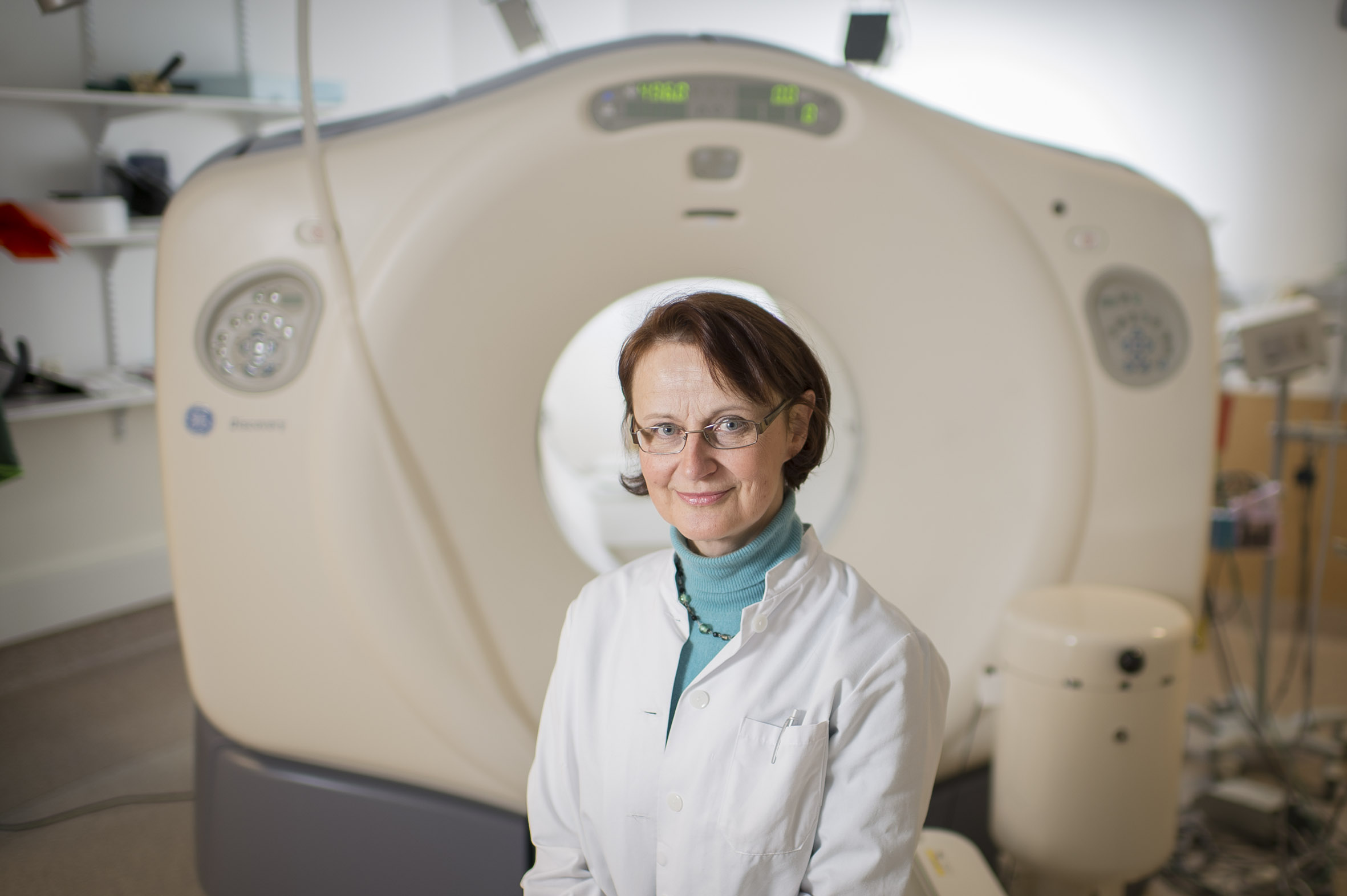As a young researcher at the University of Turku in Finland in the early 1990s, Pirjo Nuutila became involved in the pioneering stages of using positron emission tomography (PET) scanning to study metabolic disorders such as diabetes.
This had not been done before, but 30 years later Pirjo Nuutila’s CV includes more than 400 publications in this field, including several ground-breaking discoveries that have changed how the world understands disorders such as diabetes and obesity.
The impressive scope of Pirjo Nuutila’s work, which includes supervising several generations of new doctors and researchers over the years, has been recognised throughout a stellar career with prestigious prizes and the Medal of the Order of the White Rose of Finland.
She is now receiving the 2022 Novo Nordisk Foundation Lecture prize.
“Pirjo Nuutila was one of the first scientists to use PET scanning to study metabolic disorders and used it to measure glucose uptake in various tissues in real time. Her research has improved understanding of how insulin resistance among people with diabetes affects glucose uptake into the brain, providing insight into how diabetes affects cognition. Her extensive research makes her a very worthy recipient of the 2022 Novo Nordisk Foundation Lecture prize,” explains Anna Krook, Chair of the prize committee and Professor, Department of Physiology and Pharmacology, Karolinska Institutet, Stockholm, Sweden.
“Receiving the prize is a tremendous honour and comes as a great surprise,” says Pirjo Nuutila.
Improved understanding of diabetes
The use of scanning techniques such as PET scanning to study metabolic disorders has led to many interesting discoveries since the 1990s. For example, research carried out by Pirjo Nuutila and her colleagues at the Turku PET Centre at Turku University and Turku University Hospital has revealed how metabolic disorders affect the various tissues and organs in the body.
These include how metabolic disorders affect skeletal muscle and fat tissue. Since their discovery, these insights have contributed substantially to understanding obesity and diabetes as multi-organ disorders that affect more than just weight and blood glucose.
“Before PET technology was taken in use, the importance of insulin resistance in type 2 diabetes was found and the role of skeletal muscles in metabolism evaluated. However, most of the other organs of interest, e.g. the heart, liver, adiposity and central nervous system had been impossible to study in humans in vivo. We know a lot more about all of these today, because quantitative imaging has provided much deeper insight into what is happening in the various organs,” explains Pirjo Nuutila.
Discovered brown fat and sparked a new research field
The work of Pirjo Nuutila’s research group has elucidated many aspects of both type 1 and type 2 diabetes, and her research has helped to map the tissue-specific effects of bariatric surgery.
In 2009, the research resulted in one of the most interesting discoveries in the field: the discovery of brown fat and its role in metabolism.
The article published on this discovery is one of the most widely read in the field, with more than 2,000 citations, and the discovery has spawned an entire field dedicated to understanding the role of brown fat in health.
Anorexia in focus
After 30 years of research, it is hardly surprising that Pirjo Nuutila and her research group have published the most scientific articles in the fields of PET scanning and diabetes and PET scanning and obesity. This results from both the many scientific articles she has already published but also that she also continues to explore her field in greater detail. She was a pioneer in the early days of PET scanning and continues to be today.
In recent years, Pirjo Nuutila’s research has focused on understanding the mechanisms of SGLT2inhibitors, and renal metabolism. One of the ongoing projects aims to improve understanding of anorexia – the converse of obesity disorders. The researchers are trying to map out what happens to the body’s tissues and organs, especially when young women develop anorexia.
“Today this field is insufficiently researched, and we lack knowledge to better understand how this disorder affects the whole body,” says Pirjo Nuutila.
Pirjo Nuutila will give a lecture on her research in Reykjavik, Iceland on 12–13 May in connection with receiving the prize.
About the Novo Nordisk Foundation Lecture
The Novo Nordisk Foundation Lecture was established in 1979 and is awarded to an active scientist from a Nordic country for an outstanding contribution within research or treatment related to diabetes. The recipient is invited to hold a lecture to coincide with the annual conference of the Scandinavian Society for the Study of Diabetes.
The accompanying award of DKK 600,000 (€80,000) is distributed as a personal award of DKK 100,000 and an award for research or development work of DKK 500,000. The Novo Nordisk Foundation donates the award. The prize is awarded by a committee consisting of three members from the Novo Nordisk Foundation’s Committee on Endocrinology and Metabolism and the Chair of the Scandinavian Society for the Study of Diabetes.
Further information
Christian Mostrup, Senior Programme Lead, +45 3067 4805, [email protected]








